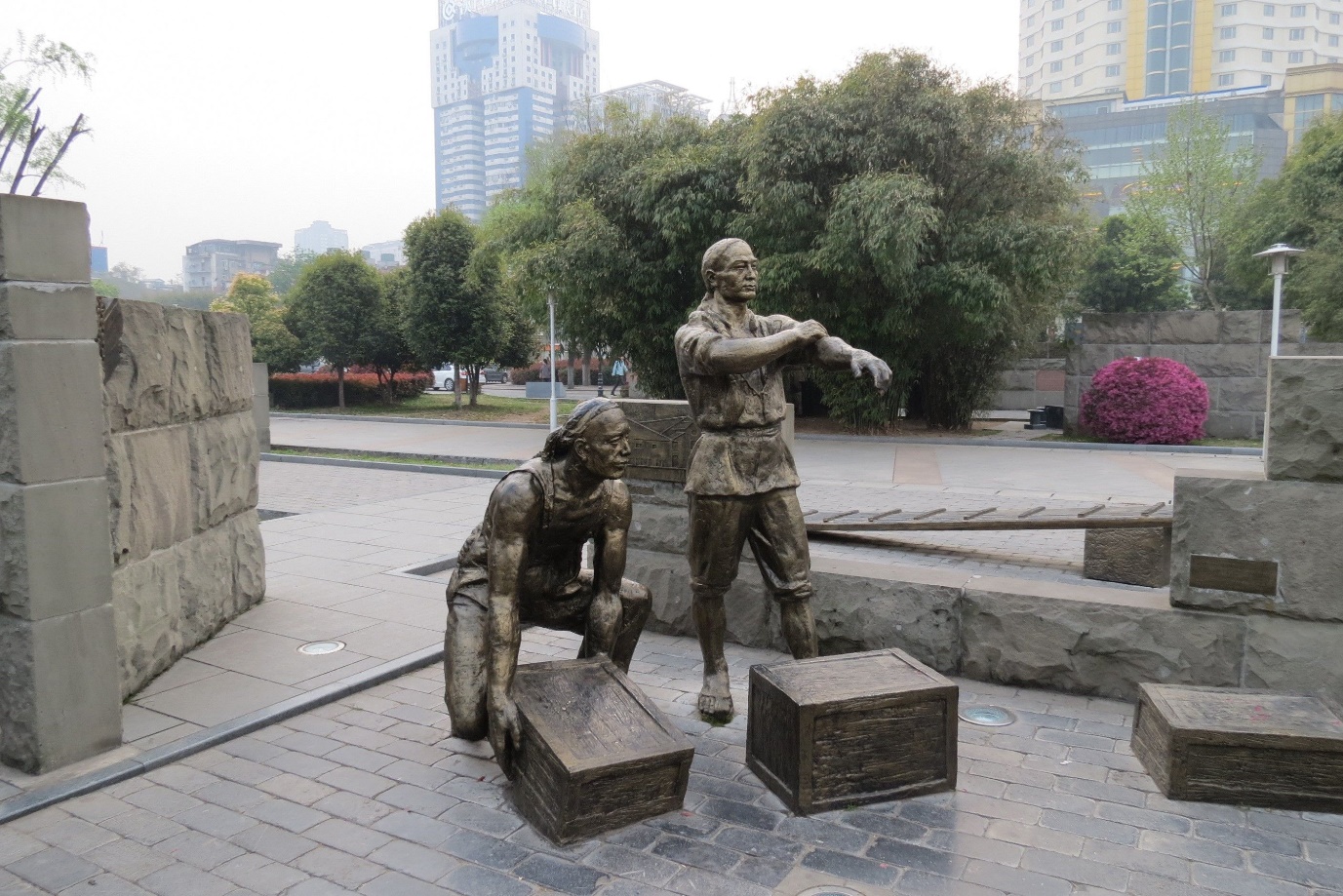Searching for economic and cosmopolitan roots: historical imaginaries and “Hankou merchant Port nostalgia” in the central Chinese city of Wuhan 武汉
Andrew Law, Q. Quin

Image: Statue image of two port workers moving cargo boxes, taken by the authors, May 2013; Port Culture Square, Hankou, Wuhan.
Abstract
In the last few years, discussions of historic urban place-marketing and urban place branding have emerged within the field of Chinese urban studies. Specifically, writers have often discussed how coalitions of the state, entrepreneurs and developers within the city of Shanghai have come together to utilise local history for the purposes of place marketing and urban branding. However, broader research into historical place-marketing into other Chinese cities is still under researched; attending to this gap in the literature, this paper seeks to explore the everyday and ‘second tier’ city of Wuhan (located in central China); examining a growth coalition within the city, this paper examines the idea that, like Shanghai, growth coalitions of developers and state led officials have drawn upon a range of powerful and attractive historic discourses to market the city; of the many historic discourses available, we argue that a narrative of “Hankou merchant Port” nostalgia has been the most prominent in the promotion and marketing of a new historic imaginary of the city. We contend that like the 1920-30s Colonial-Republican brand associated with Shanghai, the “Hankou merchant Port” nostalgia brand also enables a marketing of the city as having economic and cosmopolitan roots. Whilst this branding strategy will probably have positive economic benefits for the city, it our contention that the construction of “Hankou merchant Port” has very serious consequences for the politics of local histories, identities, the restructuring of material urban landscapes and the communities that live and/or work within these spaces.
Law, A., and Q. Qin. “Searching for economic and cosmopolitan roots: historical imaginaries and ‘Hankou merchant Port nostalgia’ in the central Chinese city of Wuhan 武汉.” Journal of the Faculty of Architecture (JFA, Middle East Technical University. METU), 2017. http://jfa.arch.metu.edu.tr/archive/0258- 5316/articles/metujfa2017214.pdf


